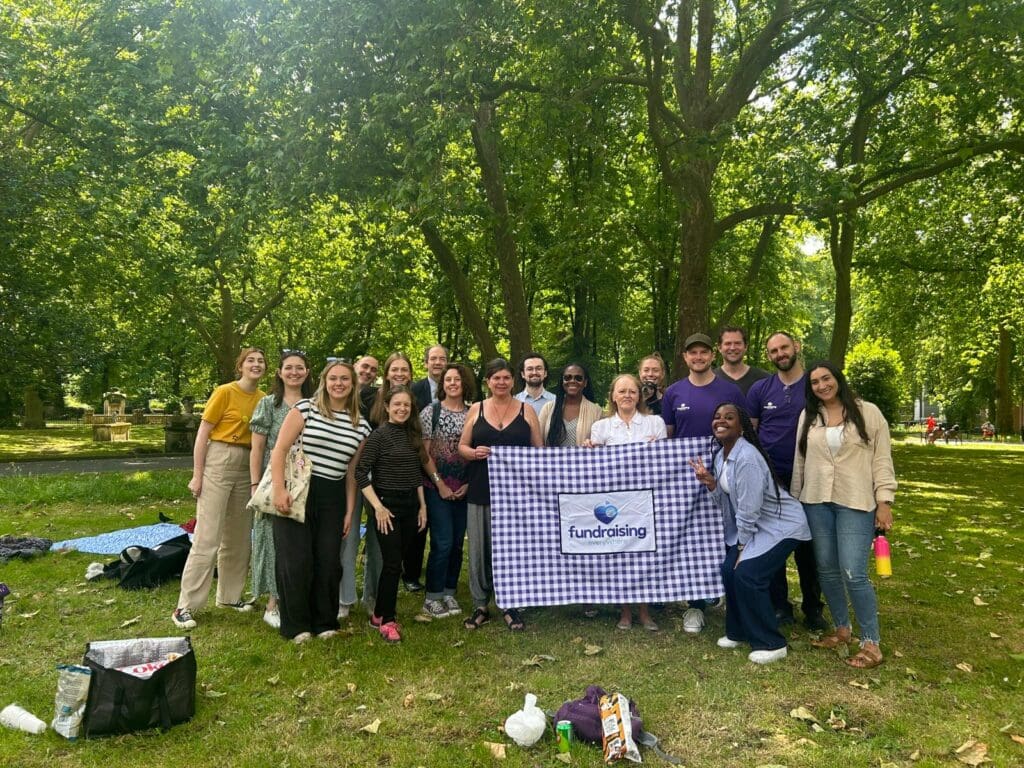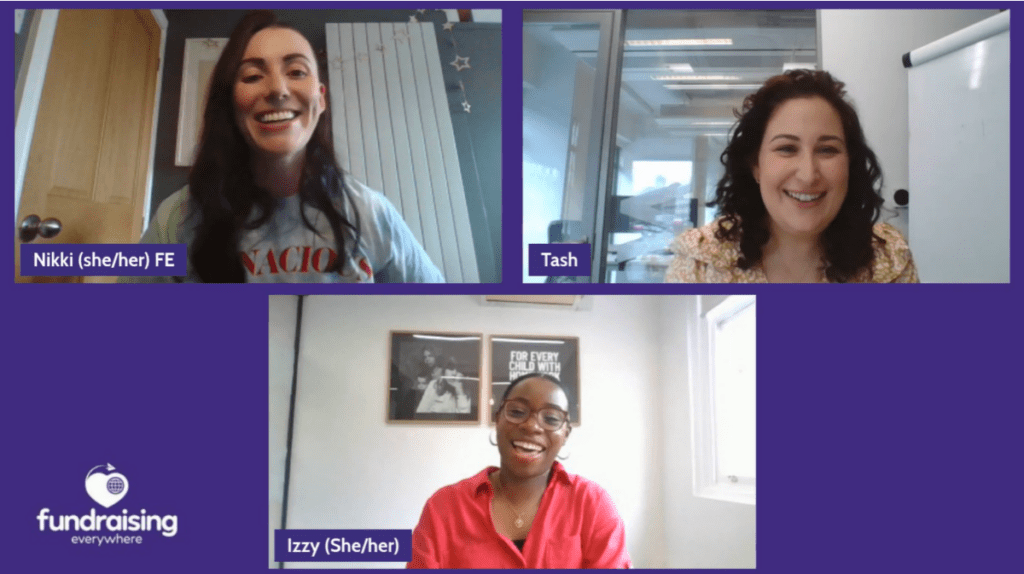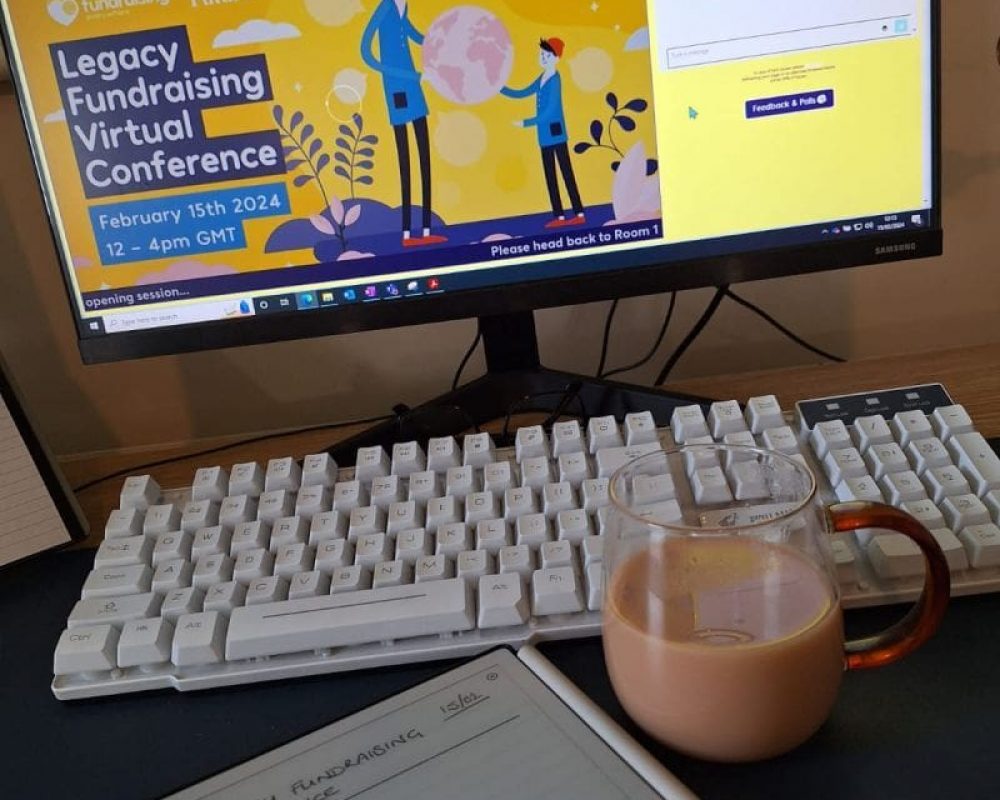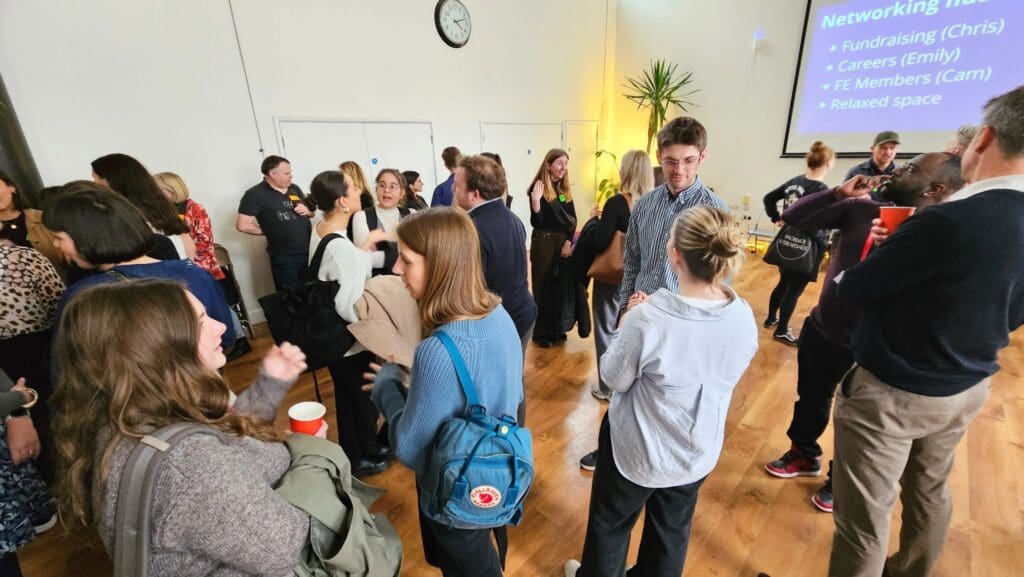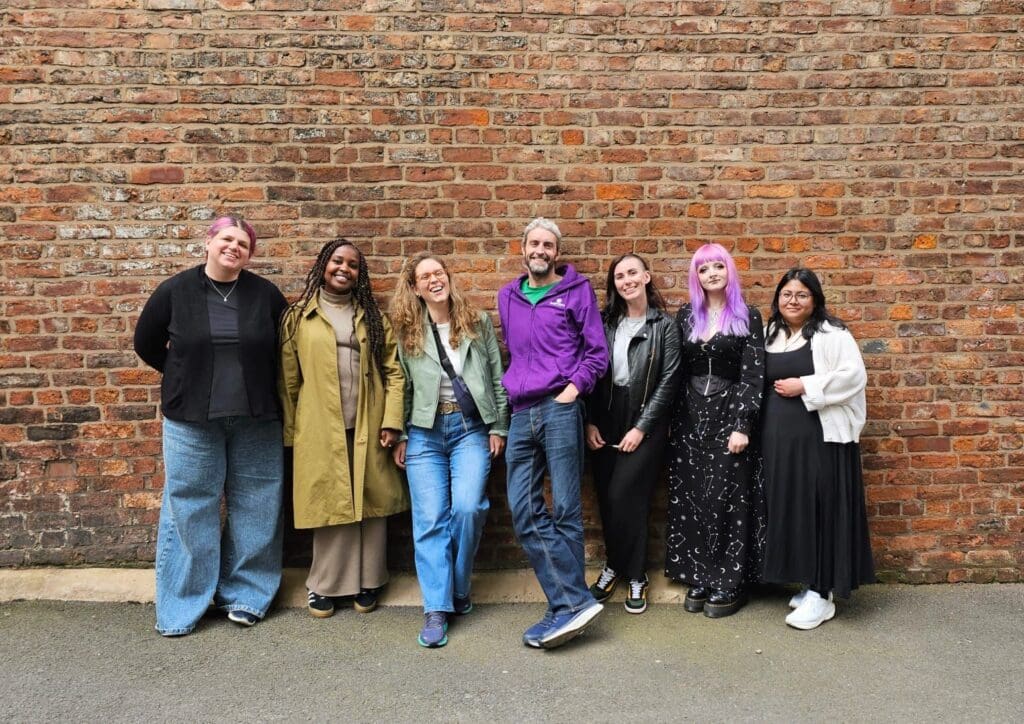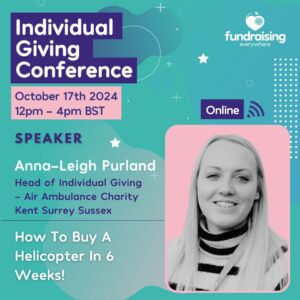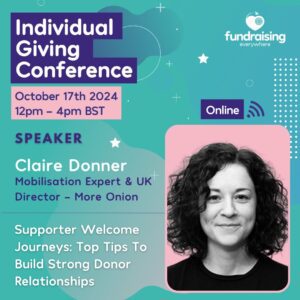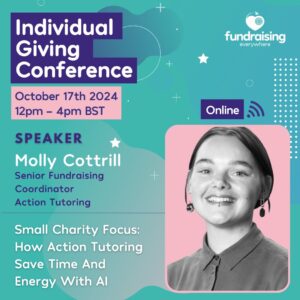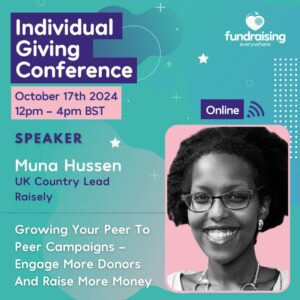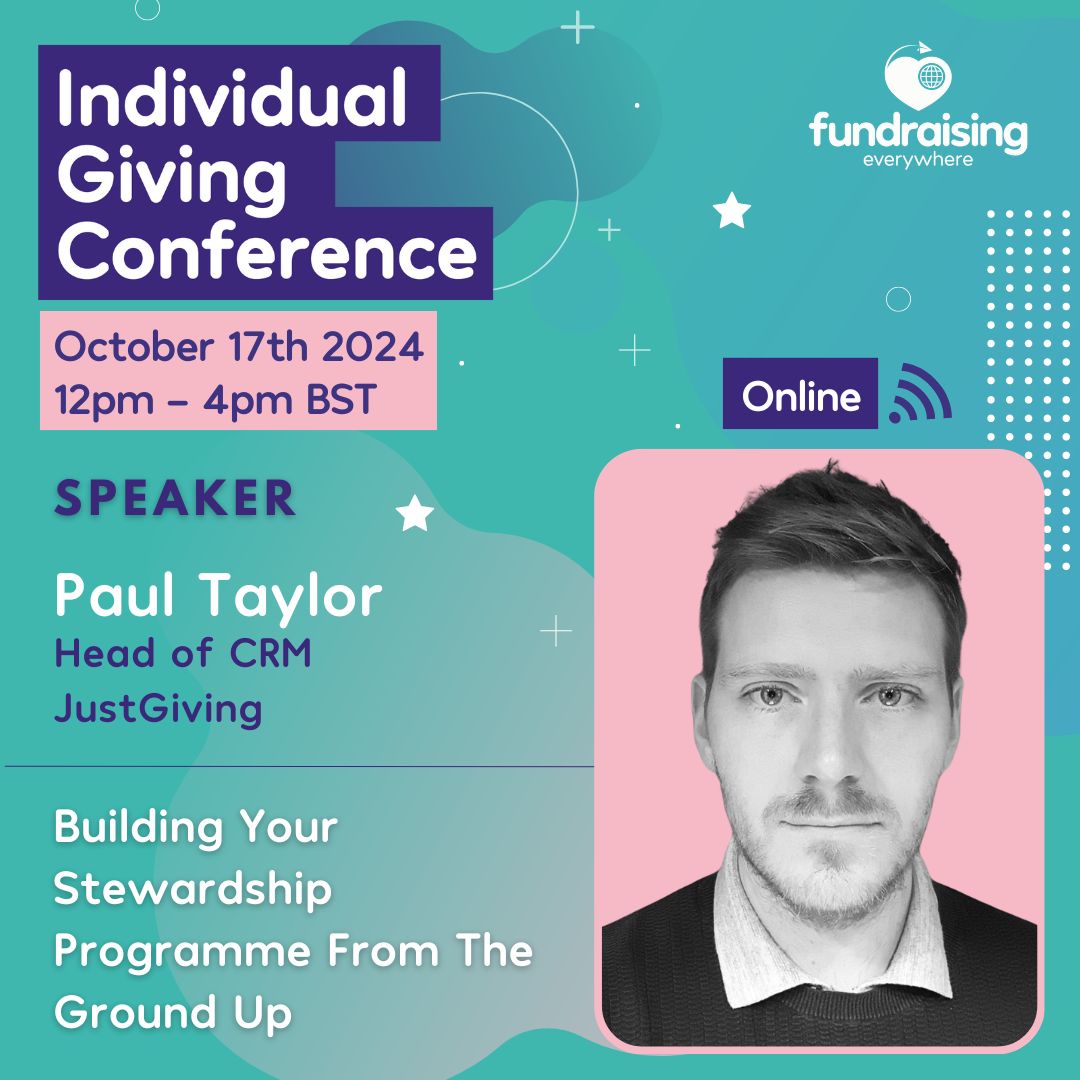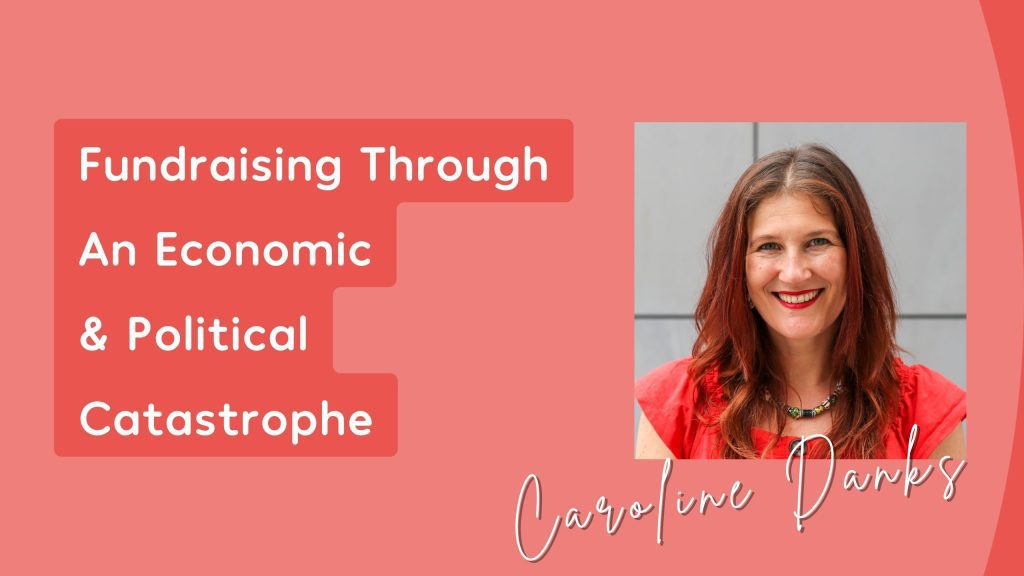
Written by Jo McGuinness MInstF(Dip), Head of Philanthropy & Partnerships at Children 1st
A year ago, I was 2 months into my current role after almost a full year of redundancy, job hunting, interim work and a general feeling of being unsettled and unsafe. I had finally been fortunate to find a role that provided me with familiarity – working with people I had worked with previously so I could feel safe, whilst doing what I loved.
My experience of intensive and stressful job hunting has stuck with me, and in my current role I feel a responsibility and desire to improve the recruitment process as much as is within my power – because, why not?
At Children 1st, we hadn’t been able to successfully recruit for a few roles before I started, so took time to review the existing process and consider what improvements could be made. We then went out in April 2022 with seven roles and filled them all.
Six of the post holders are still in post, with one who left retraining as a teacher. Before Christmas we refilled that post, using much of the same improvements to the process which have become standard within the Fundraising team.
Deciding what to change
When reviewing the current process, I spent time reflecting on what had been the main points of frustration for me as a job seeker.
- Not knowing the people behind the process.
Of 31 applications I had applied for, only 4 offered informal calls with recruiting managers. Whilst 13 did offer calls with recruiters, those conversations are never as insightful as they weren’t with the person you’d work with/under. - Unclear expectations and grading.
I was never sure how I would be graded against other candidates. Criteria was never shared (before or after interview), and some feedback received could be viewed as somewhat problematic. - Lack of communication and feedback.
Of the applications submitted that didn’t take me to interview, half didn’t let me know I was unsuccessful, I just got radio silence. One role took 12 weeks to let me know I was unsuccessful. As a job seeker this was both disheartening and felt like my time and effort wasn’t valued.
What was especially frustrating was that each of these issues can be improved with a little bit of thought and effort.
Feeling safe
Being honest about the current external climate and how that might be affecting candidates was a huge consideration. When I was job hunting it was against the background of easing out of the pandemic and whilst we aren’t back there, the cost-of-living crisis and general bin-fire state of things around us does cause feelings of insecurity for job hunters.
There are simple things recruiting managers can do to help entice job seekers to take the leap, and mainly its by being a bit more human…
- Showcase the fact your organisation is made up of individuals with personalities by filming informal videos, offering friendly conversations to connect with candidates and provide as much info about the organisation and the role as possible via different methods.
- Detail six month expectations and how success is measured in the candidate pack – be upfront with expectations so candidates can make an informed decision.
- Be transparent and share relevant policies, for example your maternity, menopause, sickness, and annual leave policies. This way candidates can check if your organisation aligns with what matters to them.
- Be honest about what’s working and where challenges are. Candidates aren’t stupid, and no organisation is without challenge. Being open about what needs improving will convey authenticity to candidates and help them to understand what the risks are in making the move.
- Be clear about what the induction period looks like and include the induction plan if you can. (This is on our list for next time!) Candidates want to know they will be supported when starting something new.
- Explain your salary banding. If you have a £10k salary band, provide clear explanation as to someone be hired at the bottom vs the top so candidates know where they stand.
Embracing flexibility
One key factor when overhauling our recruitment process was really looking critically at what we could be flexible on. We have to appreciate that societies expectations have shifted since the pandemic, we aren’t returning to the old way of working, ever.
We must embrace flexibility such as remote-based working (and FYI, that isn’t new) and ensure we aren’t viewing pre-pandemic times with rose-tinted glasses. I feel concerned when I hear leaders make comments like ‘we were much more connected before 2020’ or ‘our culture has suffered because of remote working’.
Creating connection and culture are things you can do regardless of location – you just need to be intentional about it. Make time. Expend effort. We can’t rely on water cooler chats or shouting across desks to form culture – because that wasn’t good enough back then, and now a lot of fundraisers have woken up to the fact there’s another way. Organisations need to wake up too.
If you must have an office presence, be clear with candidates on:
- The why – how does being in an office together add value that isn’t delivered remotely?
- How you will make office working more enticing e.g. support with travel costs, allow travel time within work hours, allowing dogs in the office.
Understand that if hybrid working or being office based is essential, it will limit your pool of candidates and affect existing workers in terms of personal preference, accessibility, cost and more.
Influencing upwards
Suggesting change can be tricky, especially if the powers that be above you aren’t convinced things need changing in the first instance. We are hearing from across the sector that recruiting fundraisers is tough. Many organisations are having to go out to recruit more than once for the same role, so we may find leaders with even the firmest of views start to be open to tweaks if it might help secure candidates.
- Try offering trial periods. We seem to feel quite concerned about changing recruitment practise, possibly because it feels formal and as legally there are elements that need to happen in the correct and proper way. But there is so much that can be flexed too. I spoke to our HR team who were willing to trial some changes on the understanding that I gathered feedback from candidates. That’s how we managed to do away with the incredibly annoying and candidate-unfriendly application form!
- Ask why – politely! Ask from a place of curiosity and willingness to collaborate rather than challenge. Frame questions to understand their perspective and be clear that you want to achieve change that you are both comfortable with. Sometimes it can help to find great examples out there in sector and come armed with evidence. Childrens Society and SOFii are two recent ones that are really framing flexibility and kindness to candidates well in their ads.
- Figure out what’s important and comprise on what’s not so. Have your own ‘must achieve, love to achieve and like to achieve’ list of changes. Go in firm with your musts, and flex on the rest. Its ok for change to take time – every step in the right direction is an improvement.
Remember, sometimes you might need to undertake small acts of quiet rebellion and seek forgiveness not permission!
From our experience, if you only do three things to make your recruitment practise more candidate friendly, please make it these:
- Run a critical eye over your JDs before going to recruit – remove as many person spec criteria as you can, remove red-flag phrases such as ‘hit the ground running’ and ensure it says exactly what you mean.
- Send the interview questions out in advance – you will get better quality interviews, AND you will be making the process much more accessible.
- Provide and seek feedback – candidates invest time and effort, and emotions, in partaking in our recruitment process. The least we can do is provide clear and useful feedback. And lets be humble, they know exactly how our process made them feel – so lets ask them. Once we know better, we can do better.
As recruiting managers let's not forget that we are being interviewed, too, and candidates are clearer than ever on what they want and need. We have to change, or we will be left behind.
This blog was part of an exclusive Members Clinic that Jo ran for Fundraising Everywhere Members. We hold Members Clinics every month with sector experts.
Want access to exclusive content like this, plus all our conferences & webinars to watch Live or On Demand?
Join charities like WWF, Scope, Friends of the Earth, Alzheimer's Research UK & The Children's Society and become a Member.

Written by Emily Collins-Ellis, CEO of I.G. Advisors.
"Fellowship seeks to bring together fundraisers to #FixTheFlow of resources for good"
Emily Collins-Ellis, CEO, I.G. Advisors
My journey as a resource activist
Recently, we at I.G. Advisors opened applications for our #FixTheFlow Fellowship, and I’m really grateful to Fundraising Everywhere for supporting what we’re doing, and inviting me to share a bit about why we’ve developed the programme.
To do that, I’d like to tell you a bit about my journey as a fundraiser, and as (what I call) a resource activist.
Like many of us, I accidentally got into fundraising.
It was my way of getting into the nonprofit sector, where I felt I would have purpose, and I spent years in Officer, Manager and Trustee roles across small, medium and large charities.
I’ve really seen it all! Unfortunately, I had an immediate ‘in the deep end’ introduction to the major challenges in the profession:
- My targets were always growing, and being set by budgeting and strategic processes that were completely disconnected from what I felt was possible in the market or my portfolio
- I felt immense pressure to meet those targets so as not to put our service users or organisation at risk, which felt really scary and heavy.
- The skills required to fundraise seemed to be simultaneously so basic that Trustees would tell me ‘just read the Sunday Times Rich List’, and so complex that no one could provide me with clear training or guidance.
- Sometimes, I would feel under pressure to compromise my values in the name of bringing in money. For example, by communicating about service users in undignified language to elicit bigger responses from donors; competing with peer organisations in aggressive ways; or rushing relationship building with donors to meet targets.
Even though I did well, I still wasn’t feeling very sure about my role as a fundraiser - I got into nonprofit work to feel connected to a purpose, but I felt stuck churning through transactional relationship building in a silo.
Then, the post-financial crisis austerity policies hit, and decimated the public funding for the work my charity was doing.
Suddenly, it wasn’t a matter of meeting targets for our work, but being part of a sector that was being actively deprioritised by government - it was a survival risk for us all.
My targets were always growing, and being set by budgeting and strategic processes that were completely disconnected from what I felt was possible in the market or my portfolio
And, the funding hole left by this couldn’t be filled by foundations alone - it was bigger than all their endowments put together.
This was the moment where I realised, this isn’t an ‘us and them’ sort of job - where I’m just trying to get money out of people on the other side of the table, and if I do that at enough tables, and do it better than everyone else, it will be fine.
This is when I zoomed out and realised that I was part of a funding system: a big, complex one, where my individual work, and my organisation, were just a part of the picture. I could work harder and do better on my bit of the pipeline, but if the flow of resources from wealth holders, businesses or government wasn’t there, or I was getting those limited resources at the expense of another vital organisation, what good would that do?
That is when I started to see myself as a resource activist. Someone whose job it was to organise giving, redistribute resources, and play a role within the funding system overall. I wanted to champion my causes and the practice of giving, as well as my organisation. And I knew I couldn’t do it alone.
Sometimes, I would feel under pressure to compromise my values in the name of bringing in money
My move to create social & environmental change
And so, I joined I.G. Advisors. I.G. creates social and environmental change by working with the philanthropy, business and nonprofit sectors to develop impact and growth strategies.
We have worked with 170+ organisations and 2,000+ fundraising professionals in 60 different countries, and whilst we’d love to work with everyone on developing organisational strategies, we know not every fundraiser or organisation is in a place where they can access such comprehensive support.
We’ve already responded to that challenge by developing lots of free resources, such as our What Donors Want podcast and Field Guide to Relationship Based Fundraising, but we were hearing from hundreds of fundraisers who want more hands-on support, more ideas, more chances to connect with peers, and more ways to address the challenges of the funding system. And, in the current climate, we know our approach is more vital than ever.
Resources don’t always flow where they are needed most and there are leakages, blockages and cracks across the funding system that are hampering true, long-lasting change.
#FixTheFlow
And so, we have developed, our #FixTheFlow Fellowship programme. This fellowship programme will focus on four levels of impact:
- Individual - where we’ll work with you on your personal development as a fundraiser. Enhancing your craft, your confidence, and your commitment, no matter where you’re working.
- Organisational - where we’ll help you to identify your pain points and goals, and set you up for success when driving fundraising within your workplace, no matter your job title.
- Sectoral - where we’ll bring together cohorts of fundraisers who face similar challenges with misconceptions of their causes, to do action learning together.
- Systemic - where we’ll collectively define the areas of the funding system where we want to #FixTheFlow, and develop collaborative action plans and special projects together.
Like any movement, this fellowship will be what we make of it. We have designed an experience that is not just educational, but transformational.
We feel that people and institutions should be giving more, and giving better. Resources don’t always flow where they are needed most and there are leakages, blockages and cracks across the funding system that are hampering true, long-lasting change.
If you agree, I really hope you will join us for the first cohort of this Fellowship. And I’m excited to meet you when you do.
Let’s all #FixTheFlow of resources for good.
Applications for the first cohort close 20th November 2022.
You can find out more here.
Written by Leesa Harwood, Owner of By The Waves Charity Consulting.
Too much of a good thing
Data is great. It underpins good decision-making. It helps fundraisers to understand supporters, articulate impact, measure success and prioritise the deployment of finite resources. But you can have too much of a good thing. Today we have access to lots of data, but nowhere near enough insight. Alexander Chancellor, former editor of The Spectator said:
“Excessive information creates its own form of blindness to what is actually going on.”
Now, charity professionals are faced with so much data, that they simply can’t see the wood for the trees. They are data blind.
Good, Bad & Ugly
With so much data available, sorting the good from the bad can be challenging. This summer I sifted through over 85 data sources, reports, and documents to compile After the Storm, a summary of key, socio-economic trends and their implications for charity leaders. I am not a data scientist. My background is charity leadership and fundraising, so it was hard going. The more reports I read, the more I realised that data and research can be divided into three categories:
“Excessive information creates its own form of blindness to what is actually going on.”
Alexander Chancellor, former editor of The Spectator
Good
Good data goes beyond a presentation of facts and figures. It evolves into information and then insight. In starts with a fact, then answers the question ‘so what?’ then articulates a clear implication. Good data is based on viable samples, objectivity, and curiosity. It closes the loop between asking a question, analysing facts to find an answer, then adding a big dose of common sense and context to draw a conclusion. It doesn’t just provide information, it delivers enlightenment. Researchers produce good data with one eye on the audience and the problem they’re trying to solve. They adapt their language to present their findings in a relevant and engaging way for their target audience. They know where they can add value and they set out to do so from the start.
Bad
Bad data is everywhere. Vast quantities of facts, figures, graphs, and charts couched in impenetrable language that makes your eyes spin and your ears bleed. Bad data is not necessarily incorrect or corrupt data. It’s just not useful. It is often compiled and presented by incredibly clever people who know their subject matter but not their audience. You have to work hard to optimise bad data. Finding it, translating it, processing it, then applying it to your world or problem. Usually, the ‘so what?’ answer is buried in so much jargon that you give up and go home.
Ugly
This is the worst data of all because can be misleading and fake. It falls into three categories:
1. Clickbait
A headline loosely linked to some random statistics picked from a survey using questionable methodology. Great at grabbing headlines, a data capture tool and a way of inflating click-through statistics.
2. Tiny sample
Survey results with tiny sample sizes are useless. There are over 160,000 registered charities in England and Wales, and yet some high profile, sector bodies persist in presenting conclusive trend data based on samples of less than 50 charities. This is literally not big, and not clever.
3. Pre-determined answer
Usually companies or suppliers commission research or surveys with a specific result in mind. Usually that result nudges you to buy their product. It’s unfair to suggest that all supplier-commissioned research falls into this category. But if a business produces a survey that aligns with its marketing content, it’s always sensible to cross check with an alternative data source just in case.
Data is fickle. With enough manipulation, the right lens and selective bias you can make data say pretty much anything.
Torture the data and it will confess to anything
Data is fickle. With enough manipulation, the right lens and selective bias you can make data say pretty much anything. But as fundraisers, we rely on it to keep us current, efficient and honest so it is important that we know where to go to find good data and how to use it properly. By learning to recognise the good, the bad and the ugly fundraisers will always use the right data to answer the right questions at the right time.
